Oral Health
How to submit an article:
- Registered users can submit any published journal article that has a unique DOI (Digital Object Identifier) name or link to Research Hub.
- For example, you can paste the full DOI link:
https://doi.org/10.1109/5.771073or just the DOI name:10.1109/5.771073into the field above and click submit. - The person who is first to submit a valid article to Research Hub will forever be credited for it, and every article submission earns you +6 Research Points.
Also known as: Oral Disease
Sub-Topics:
Related Topics
Published research studies are articles that present the findings of original research that has undergone a peer-review process and has been made publicly available in scholarly journals, books or other media.
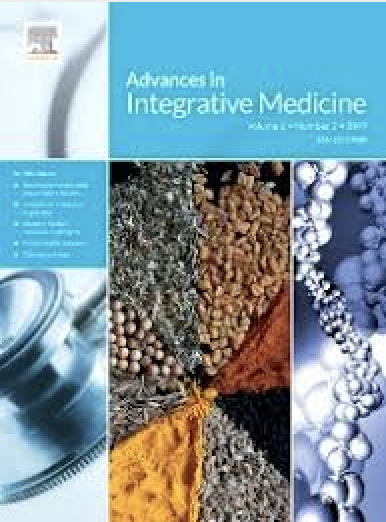
A systematic review of the therapeutic properties of lemon essential oil
2025 Sep Advances in Integrative Medicine Gonçalves S, Castro J, Almeida A, Monteiro M, Rodrigues T, Fernandes R, et al.
The results of the systematic review consistently demonstrated the efficacy of lemon essential oil in reducing anxiety among students, Acute myocardial infarction patients, and pre-surgical patients, as well as improving physiological benefits such as blood pressure and heart rate in Acute myocardial infarction patients and cognitive performance among students, and measures related to halitosis in oral health.
Systematic Review Halitosis Cognitive Function Myocardial Infarction Anxiety Lemon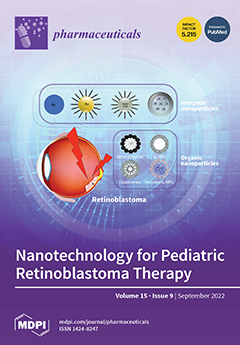
Exploring the Clinical Applications of Lemongrass Essential Oil: A Scoping Review
2024 Jan 25 Pharmaceuticals Kusuma IY, Perdana MI, Vágvölgyi C, Csupor D, Takó M
Review Article Lemongrass Oil Dandruff Gingivitis Periodontitis LemongrassLemongrass essential oil can effectively treat periodontitis, gingivitis, oral malodour, skin aging, and dandruff, and it is comparable to certain established treatments.

A systematic and comprehensive review on current understanding of the pharmacological actions, molecular mechanisms, and clinical implications of the genus Eucalyptus
2021 Nov Phytomedicine Plus Chandorkar N, Tambe S, Amin P, Madankar C
Eucalyptus species, especially Eucalyptol, demonstrate significant potential in the treatment and management of various diseases, including respiratory disorders, COVID-19, pain, oral health, infectious diseases, and cancer, as supported by preclinical and clinical studies.
Review Article Pharmacologic Activity Eucalyptus Clinical Implication Health Benefits Molecular Mechanism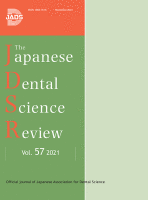
Impact of Green Tea (Camellia Sinensis) on periodontitis and caries. Systematic review and meta-analysis
2021 Nov Japanese Dental Science Review Mazur M, Ndokaj A, Jedlinski M, Ardan R, Bietolini S, Ottolenghi L
Systematic Review Meta-Analysis Oral Health Green TeaGreen tea treatment has shown potential in improving oral hygiene and gingival health, and reducing periodontitis and caries.
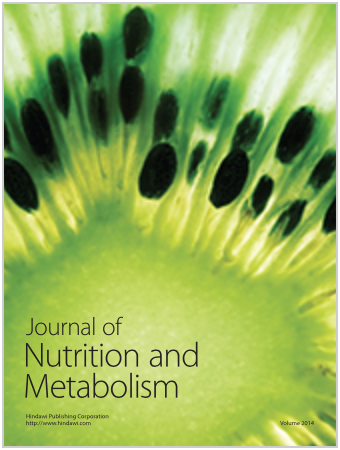
Therapeutic Effects of Punica granatum (Pomegranate): An Updated Review of Clinical Trials
2021 Nov 16 Journal of Nutrition and Metabolism Eghbali S, Askari SF, Avan R, Sahebkar A
Review Article Cardiovascular Disease Oral Health Anticancer Pomegranate Type 2 DiabetesThe pomegranate plant has a rich inventory of phytochemical constituents showing pharmacological efficiency in treating cardiovascular and endocrine diseases.
Research insights are moderated by the Research Hub team and offer an at-a-glance overview of interesting research findings.

2024 Pharmaceuticals
Lemongrass essential oil can effectively treat periodontitis, gingivitis, oral malodour, skin aging, and dandruff, and it is comparable to certain established treatments.
Review Article Dandruff Gingivitis Lemongrass Lemongrass Oil Periodontitis
Exploring the Clinical Applications of Lemongrass Essential Oil: A Scoping Review
Kusuma IY, Perdana MI, Vágvölgyi C, Csupor D, Takó M

2021 Journal of Nutrition and Metabolism
The pomegranate plant has a rich inventory of phytochemical constituents showing pharmacological efficiency in treating cardiovascular and endocrine diseases.
Review Article Anticancer Cardiovascular Disease Pomegranate Type 2 Diabetes
Therapeutic Effects of Punica granatum (Pomegranate): An Updated Review of Clinical Trials
Eghbali S, Askari SF, Avan R, Sahebkar A

2021 Japanese Dental Science Review
Green tea treatment has shown potential in improving oral hygiene and gingival health, and reducing periodontitis and caries.
Systematic Review Green Tea
Impact of Green Tea (Camellia Sinensis) on periodontitis and caries. Systematic review and meta-analysis
Mazur M, Ndokaj A, Jedlinski M, Ardan R, Bietolini S, Ottolenghi L
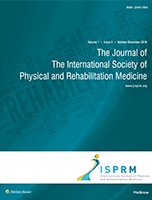
2021 Journal of the International Society of Physical and Rehabilitation Medicine
Morinda citrifolia fruit extract effectively supports bone regeneration and has anti-inflammatory properties in periodontal bone defects.
Randomised Controlled Trial Anti-Inflammatory Noni Periodontitis
Evaluation of Morinda citrifolia (noni) fruit extract as a bone regenerative material in the treatment of periodontal intrabony osseous defects: Clinical and cone-beam computed tomography assessment
Sabu BS, Chandrashekar KT, Mishra R, Tripathi VD, Khatri H, Deo A
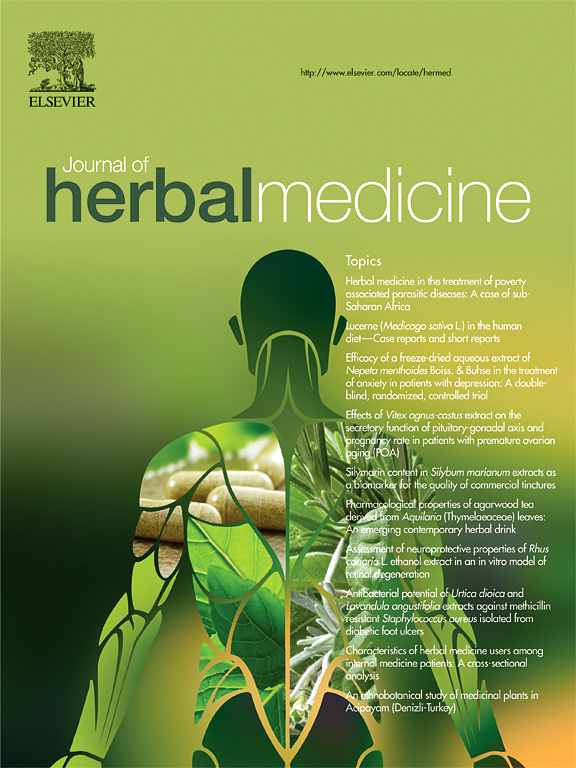
2020 Journal of Herbal Medicine
Green tea catechins-containing mouthwash may potentially be a practical alternative to chlorhexidine due to its efficacy in plaque reduction and minimal side effects.
Systematic Review Gingivitis Green Tea Plaque
The Effect of Green Tea on plaque and gingival inflammation: A systematic review
Gartenmann SJ, Steppacher SL, von Weydlich Y, Heumann C, Attin T, Schmidlin PR
Review Articles
Review articles summarise and critically evaluate the current state of research on a specific topic or field by synthesising multiple primary research studies.

A systematic review of the therapeutic properties of lemon essential oil
2025 Sep Advances in Integrative Medicine Gonçalves S, Castro J, Almeida A, Monteiro M, Rodrigues T, Fernandes R, et al.
The results of the systematic review consistently demonstrated the efficacy of lemon essential oil in reducing anxiety among students, Acute myocardial infarction patients, and pre-surgical patients, as well as improving physiological benefits such as blood pressure and heart rate in Acute myocardial infarction patients and cognitive performance among students, and measures related to halitosis in oral health.
Systematic Review Halitosis Cognitive Function Myocardial Infarction Anxiety Lemon
Exploring the Clinical Applications of Lemongrass Essential Oil: A Scoping Review
2024 Jan 25 Pharmaceuticals Kusuma IY, Perdana MI, Vágvölgyi C, Csupor D, Takó M
Review Article Lemongrass Oil Dandruff Gingivitis Periodontitis LemongrassLemongrass essential oil can effectively treat periodontitis, gingivitis, oral malodour, skin aging, and dandruff, and it is comparable to certain established treatments.

A systematic and comprehensive review on current understanding of the pharmacological actions, molecular mechanisms, and clinical implications of the genus Eucalyptus
2021 Nov Phytomedicine Plus Chandorkar N, Tambe S, Amin P, Madankar C
Eucalyptus species, especially Eucalyptol, demonstrate significant potential in the treatment and management of various diseases, including respiratory disorders, COVID-19, pain, oral health, infectious diseases, and cancer, as supported by preclinical and clinical studies.
Review Article Pharmacologic Activity Eucalyptus Clinical Implication Health Benefits Molecular Mechanism
Impact of Green Tea (Camellia Sinensis) on periodontitis and caries. Systematic review and meta-analysis
2021 Nov Japanese Dental Science Review Mazur M, Ndokaj A, Jedlinski M, Ardan R, Bietolini S, Ottolenghi L
Systematic Review Meta-Analysis Oral Health Green TeaGreen tea treatment has shown potential in improving oral hygiene and gingival health, and reducing periodontitis and caries.

Therapeutic Effects of Punica granatum (Pomegranate): An Updated Review of Clinical Trials
2021 Nov 16 Journal of Nutrition and Metabolism Eghbali S, Askari SF, Avan R, Sahebkar A
Review Article Cardiovascular Disease Oral Health Anticancer Pomegranate Type 2 DiabetesThe pomegranate plant has a rich inventory of phytochemical constituents showing pharmacological efficiency in treating cardiovascular and endocrine diseases.
Clinical Trials
Clinical trials are research studies that involve people and are conducted to evaluate the safety and efficacy of new treatments or interventions, such as drugs, medical devices, or behavioural therapies.

Evaluation of Morinda citrifolia (noni) fruit extract as a bone regenerative material in the treatment of periodontal intrabony osseous defects: Clinical and cone-beam computed tomography assessment
2021 Jan Journal of the International Society of Physical and Rehabilitation Medicine Sabu BS, Chandrashekar KT, Mishra R, Tripathi VD, Khatri H, Deo A
Randomised Controlled Trial Anti-Inflammatory Periodontitis NoniMorinda citrifolia fruit extract effectively supports bone regeneration and has anti-inflammatory properties in periodontal bone defects.
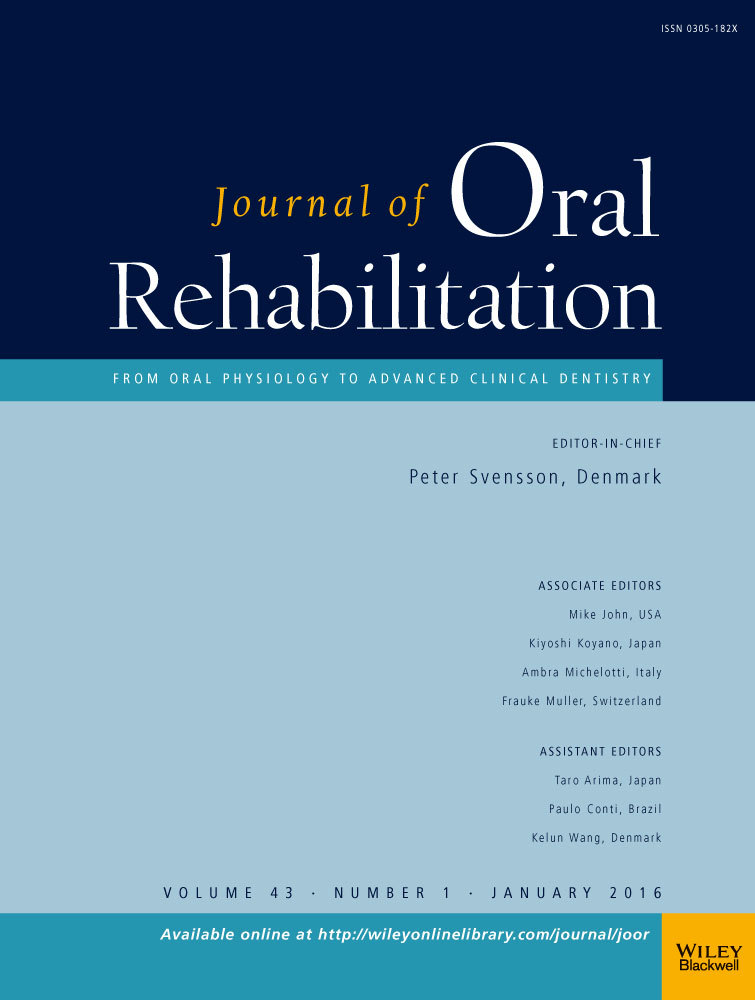
Acupuncture for pain, mandibular function and oral health‐related quality of life in patients with masticatory myofascial pain: A randomised controlled trial
2020 Jul 31 Journal of Oral Rehabilitation Salles‐Neto FT, Paula JS, Romero JGAJ, Almeida‐Leite CM
Although acupuncture was effective in pain reduction, non-specific factors may have influenced mandibular function and oral health-related quality of life improvements in both groups, and this needs to be further addressed.
Randomised Controlled Trial Masticatory Myofascial PainStudy Protocols
Published study protocols are detailed plans that outline the objectives, methodology, statistical analyses, and organisation of a research study that have been made publicly available for others to review and use as a reference.
Presentation Slides

Review Article
Lemongrass essential oil can effectively treat periodontitis, gingivitis, oral malodour, skin aging, and dandruff, and it is comparable to certain established treatments.
Kusuma IY, Perdana MI, Vágvölgyi C, Csupor D, Takó M

Review Article
The pomegranate plant has a rich inventory of phytochemical constituents showing pharmacological efficiency in treating cardiovascular and endocrine diseases.
Eghbali S, Askari SF, Avan R, Sahebkar A

Systematic Review
Green tea treatment has shown potential in improving oral hygiene and gingival health, and reducing periodontitis and caries.
Mazur M, Ndokaj A, Jedlinski M, Ardan R, Bietolini S, Ottolenghi L

Randomised Controlled Trial
Morinda citrifolia fruit extract effectively supports bone regeneration and has anti-inflammatory properties in periodontal bone defects.
Sabu BS, Chandrashekar KT, Mishra R, Tripathi VD, Khatri H, Deo A

Systematic Review
Green tea catechins-containing mouthwash may potentially be a practical alternative to chlorhexidine due to its efficacy in plaque reduction and minimal side effects.
Gartenmann SJ, Steppacher SL, von Weydlich Y, Heumann C, Attin T, Schmidlin PR
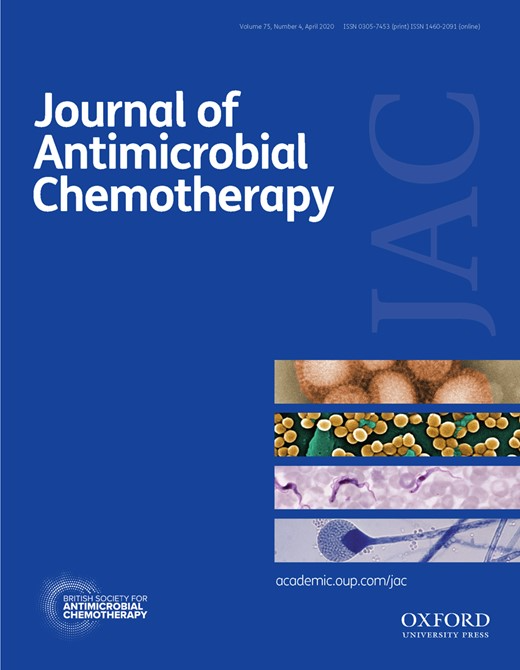
Systematic Review
Honey showed a significant antimicrobial activity against all targeted periopathogen and could be effective in the treatment of periodontal disease.
Hbibi A, Sikkou K, Khedid K, El Hamzaoui S, Bouziane A, Benazza D
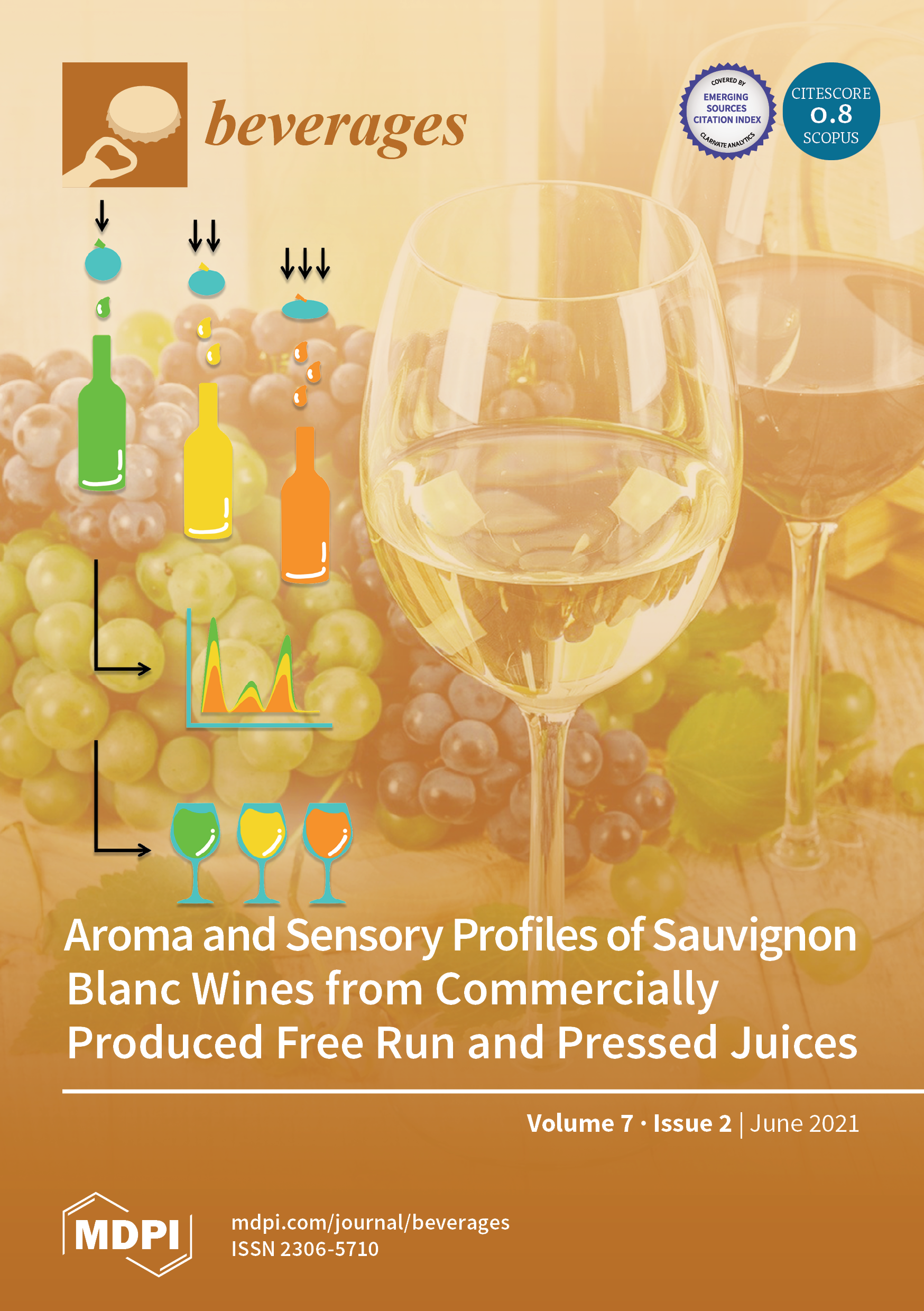
Systematic Review
Among the health benefits of green tea are: anticarcinogenic, anti-inflammatory, antimicrobial, and antioxidant properties, and benefits in cardiovascular disease and oral health.
Wanda C. Reygaert
Executive Summary
Write an executive summary in the form of a blog article on the topic of "Research into Chinese medicine treatment for Oral Health" summarising the research below and using language that can be easily understood by patients and avoiding medical jargon using a professional and caring tone of voice.
Write an executive summary in the form of a blog article on the topic of "Researched Chinese medicine treatments for Oral Health" summarising the research below in an objective and easy to understand way, and using language that can be easily understood by patients. Group the article into Chinese medicine treatments first, followed by nutrition and other treatments. Avoid using medical jargon and use a professional and caring tone of voice.
Write me a concise but easy to understand executive summary on the topic of "Chinese medicine treatments for Oral Health" based on the following research that I will give you. Your summary should be 2 paragraphs long in Australian English spelling and include references to the studies.
A Review Article published in 2024 in the journal Pharmaceuticals found that Lemongrass essential oil can effectively treat periodontitis, gingivitis, oral malodour, skin aging, and dandruff, and it is comparable to certain established treatments. The methodology used in the research followed a scoping review design, which was aimed at identifying, summarizing, and synthesizing existing literature related to the clinical applications of lemongrass essential oil. Three databases, namely PubMed, Web of Science, and Scopus, were utilized, following the PRISMA-ScR guidelines, to find articles published within approximately a 10-year timeframe. The results of the review suggest that patients have received noticeable therapeutic benefits from treatments that were primarily administered oromucosally and topically. It can be deduced that the efficacy of lemongrass essential oil in treating periodontitis, gingivitis, and oral malodour is similar to that of chlorhexidine and doxycycline. Moreover, the oil has demonstrated potential in treating skin conditions such as pityriasis versicolor, preventing skin aging, and having anti-dandruff effects. The diverse range of applications of the oil and its efficacy when compared to established treatments highlight its potential for clinical applications.
A Review Article published in 2021 in the journal Journal of Nutrition and Metabolism found that The pomegranate plant has a rich inventory of phytochemical constituents showing pharmacological efficiency in treating cardiovascular and endocrine diseases. The researchers set out to review both traditional and scientific applications of P. granatum focusing on its phytochemical content and potential for aiding in drug development. They gathered relevant information through both classic herbal literature and electronic databases, which included renowned platforms such as PubMed, Scopus, and ScienceDirect. The culmination of traditional and contemporary research showed an array of phytochemical constituents in P. granatum, including polyphenolics, flavonoids, anthocyanosides, alkaloids, lignans, and triterpenes. Randomized controlled trials indicated these constituents demonstrate pharmacological activity, particularly against diseases like diabetes, cardiovascular disease, oral cavity disorders, endocrine disorders, and even cancer. The review, therefore, not only points to the traditional uses of P. granatum but underscores their validation through scientific support.
A Systematic Review published in 2021 in the journal Japanese Dental Science Review found that Green tea treatment has shown potential in improving oral hygiene and gingival health, and reducing periodontitis and caries. The methodology of this research consisted of systematic literature review focusing on clinical trials that evaluated the impact of green tea on managing periodontitis and caries. Various databases including MedLine (PubMed), Scopus, and the Cochrane Library were utilized for gathering relevant studies. Eighteen suitable studies were selected, encompassing 870 subjects. The results reveal a noticeable positive effect from green tea treatment. This effect was realized in the reduction of gingival index, plaque index, gingival bleeding index and bleeding on probing when compared to a control group. It was also noted that when considered among chlorhexidine control groups, green tea showed a slight negative effect. There was additionally a significant positive effect seen in the reduction of clinical attachment level and probing pocket depth with green tea treatment.
A Randomised Controlled Trial published in 2021 in the journal Journal of the International Society of Physical and Rehabilitation Medicine found that Morinda citrifolia fruit extract effectively supports bone regeneration and has anti-inflammatory properties in periodontal bone defects. This study randomized twenty patients who required periodontal regenerative therapy into two groups - an experimental group and a control group. For the control group, open flap debridement alone was used while in the experimental group, the application of Morinda citrifolia fruit extract was coupled with open flap debridement. Clinical aspects such as the gingival index, probing depth of pockets, and relative attachment level were assessed, along with the quantity of bone fill using cone-beam computed tomography at the beginning and after six months. The use of Morinda citrifolia fruit extract in the experimental group resulted in a significant reduction in probing pocket depth and increase in relative attachment level. Furthermore, the extract promoted a higher rate of bone fill in the experimental group compared with the control group, suggesting efficiency in the treatment of intraosseous defects. Additionally, the extract showcased some anti-inflammatory effects, amplifying its potential therapeutic uses.
A Systematic Review published in 2020 in the journal Journal of Herbal Medicine found that Green tea catechins-containing mouthwash may potentially be a practical alternative to chlorhexidine due to its efficacy in plaque reduction and minimal side effects. The methodology involved an exhaustive literature review of several electronic databases, such as CINAHL, Cochrane Library, MEDLINE, PubMed and Scopus, up until January 2017. This review adhered to the PRISMA criteria, centring the research question around the impact of green tea catechins-containing mouthwash on plaque accumulation and gingival inflammation in patients with gingivitis. Out of the 187 titles identified this way, five were fit for meta-analysis, the subject matter primarily revolving around an Asian population. The results indicated that both green tea and chlorhexidine (CHX) significantly outperformed a placebo in reducing Plaque Index (PI), with no substantial contrast between the CHX and green tea groups, both in terms of the endpoint and the change from the beginning of the study to its conclusion. However, only minor side effects were associated with the green tea mouthwash. Contrarily to chlorhexidine, this aspect might make green tea mouthwash more suitable for prolonged use. Despite some heterogeneity in the data and potential bias risks, green tea mouthwash remains an interesting, viable alternative worth considering.
A Systematic Review published in 2020 in the journal Journal of Antimicrobial Chemotherapy found that Honey showed a significant antimicrobial activity against all targeted periopathogen and could be effective in the treatment of periodontal disease. A total of 1448 publications were found as search results in the screened databases. Sixteen eligible papers were included based on predetermined inclusion criteria. Retained studies included 5 RCTs and 11 in vitro controlled trials. Manuka and multifloral honeys were the most studied varieties. The tested honeys showed a significant antimicrobial action, with different MICs, against eight periopathogens. Four of the five RCTs showed a high RoB, while 4 of the 11 retained in vitro studies showed a medium RoB.
A Systematic Review published in 2018 in the journal Beverages found that Among the health benefits of green tea are: anticarcinogenic, anti-inflammatory, antimicrobial, and antioxidant properties, and benefits in cardiovascular disease and oral health. Green tea catechins have proved to be very versatile in providing health benefits. This means that there are potential health benefits for everyone in the consumption of green tea. Even moderate amounts of consumption (drinking 1–2 cups of tea per day) may have benefits. It is a very good thing that it is the second most popular beverage worldwide, as the differences in health in a world without green tea might be significant. There is fortunately a wide variety of research being performed using green tea catechins, and we are starting to see many studies performed using human subjects, as it is extremely important that we are able to show the direct benefits to humans. The expansive repertoire of green tea activity in health is important, especially to those people who live where medical assistance is not generally available or affordable.
Moderation Tools
Topic
Sign In
Users not signed in are limited to viewing the 5 most recent items of content.